United States Job Openings
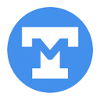
Tufts Medical Center
Sr. Residency Program Coordinator
Boston
FULL TIME
November 4, 2024
Job Overview
Job Description
Duties and Responsibilities: The duties and responsibilities listed below are intended to describe the general nature of work and are not intended to be an all-inclusive list. Other duties and responsibilities may be assigned.
1. Provides advanced user training in New Innovations to program coordinators and directors related to duty hours monitoring, setting up evaluations for faculty evaluation of resident, resident evaluation of faculty, resident evaluation of rotation and faculty evaluation of program.
Physical Requirements:
Skills & Abilities:
Tufts Medicine is a leading integrated health system bringing together the best of academic and community healthcare to deliver exceptional, connected and accessible care experiences to consumers across Massachusetts. Comprised of Tufts Medical Center, Lowell General Hospital, Melrose Wakefield Hospital, Lawrence Memorial Hospital of Medford, Care at Home - an expansive home care network, and large integrated physician network. We are an equal opportunity employer and value diversity and inclusion at Tufts Medicine. Tufts Medicine does not discriminate on the basis of race, color, religion, sex, sexual orientation, age, disability, genetic information, veteran status, national origin, gender identity and/or expression, marital status or any other characteristic protected by federal, state or local law. We will ensure that individuals with disabilities are provided reasonable accommodation to participate in the job application or interview process, to perform essential job functions, and to receive other benefits and privileges of employment. Please contact us to request accommodation by emailing us at careers@tuftsmedicine.org.
New Job Alerts

Kampgrounds Of America
YEL - MAINTENANCE ENGINEER
West Yellowstone
November 19, 2024
View Job Description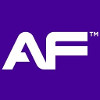
Anytime Fitness - Milwaukee, WI
Anytime Fitness - Personal Training Manager
Milwaukee
November 19, 2024
View Job Description
ValidaTek, Inc.
Senior Program Manager
Kearneysville
FULL TIME
November 19, 2024
View Job Description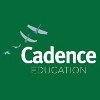


State of Colorado Job Opportunities
Data and Technology Governance Manager
Denver
FULL TIME
November 19, 2024
View Job DescriptionLooking for similar job?
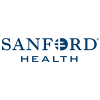
Sanford Health
Camp Coordinator | Community Programs
Sioux Falls
FULL TIME
October 12, 2024
View Job Description
Sanford Health
Camp Coordinator | Community Programs
Sioux Falls
FULL TIME
October 12, 2024
View Job Description
Thermo Fisher Scientific
General Management Graduate Leadership Development Program
Waltham
FULL TIME
October 12, 2024
View Job Description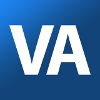
US Veterans Health Administration
Social Worker (Program Coordinator)
Honolulu
October 12, 2024
View Job Description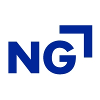
Northrop Grumman
2025 Associate Software Engineer - Pathways Program - Huntsville (AL)
Huntsville
October 12, 2024
View Job DescriptionNasen
California Clearinghouse Program Assistant
Tacoma
FULL TIME
October 12, 2024
View Job DescriptionNew Job Alerts

Kampgrounds Of America
YEL - MAINTENANCE ENGINEER
West Yellowstone
November 19, 2024
View Job Description
Anytime Fitness - Milwaukee, WI
Anytime Fitness - Personal Training Manager
Milwaukee
November 19, 2024
View Job Description
ValidaTek, Inc.
Senior Program Manager
Kearneysville
FULL TIME
November 19, 2024
View Job Description


State of Colorado Job Opportunities
Data and Technology Governance Manager
Denver
FULL TIME
November 19, 2024
View Job Description